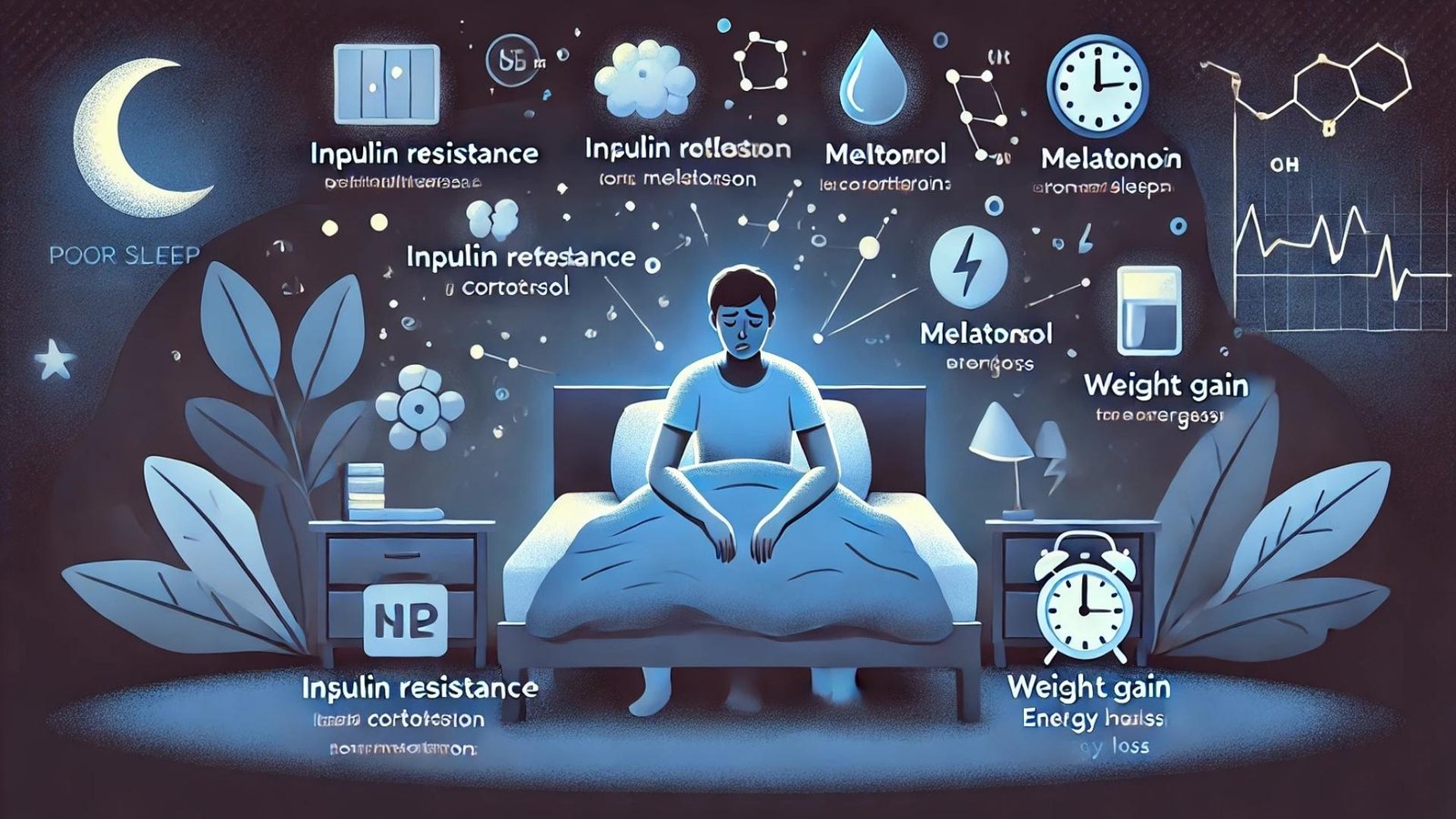Have you ever wondered why a poor night’s sleep sends you straight to the cookie jar? Or why that midnight snack might be doing more than just adding extra calories? The connection between sleep and metabolism is far more fascinating – and important – than most of us realize. Let’s dive into the science behind this crucial relationship and discover how your sleeping habits might be affecting your metabolic health.
The Hidden Link Between Sleep and Your Body’s Balance
You might think that sleep is just your body’s way of recharging, like plugging in your phone overnight. But there’s so much more happening beneath the surface! During those precious hours of shut-eye, your body is hard at work maintaining your metabolic balance. Research shows that up to 88% of adults have some degree of insulin resistance, and guess what? Poor sleep might be a bigger culprit than we thought.
Why Your Body Needs Quality Sleep
When you get proper sleep, your body:
- Restores insulin sensitivity
- Repairs cells through a process called autophagy
- Balances hormones that control appetite
- Regulates energy metabolism
The Cortisol Chaos: When Sleep Goes Wrong
Picture cortisol as your body’s internal alarm system. Normally, it follows a nice, predictable pattern – peaking in the early morning to help you wake up and gradually declining throughout the day. But when you’re not getting enough sleep? That’s when things get messy.
What Happens When Cortisol Goes Haywire?
Sleep deprivation throws your cortisol rhythm into chaos. Instead of that gentle morning peak, you get elevated levels that stick around all day like an unwanted house guest. This disruption acts like a metabolic wrecking ball in your body:
-
- It triggers the production of ceramides (special fats that block insulin from doing its job)
- Your liver starts pumping out extra glucose
- Your insulin levels stay elevated
- Your cells become increasingly resistant to insulin
The Melatonin Mystery: Your Sleep Hormone’s Secret Identity
Here’s something that might surprise you: melatonin isn’t just about making you sleepy! This fascinating hormone is actually a metabolic multitasker. While most of us know it as the “sleep hormone,” it’s secretly moonlighting as a crucial player in your metabolic health.
Melatonin’s Double Life
During the night, melatonin:
- Helps lower your body temperature
- Regulates insulin secretion
- Improves insulin signaling
- Helps your body switch from burning glucose to burning fat
But when your sleep schedule gets disrupted, this delicate balance goes out the window. It’s like trying to conduct an orchestra where half the musicians are playing from different sheets of music!
The Nighttime Munchies: Why Evening Snacking Sabotages Your Sleep
Ever find yourself craving carbs right before bed? You’re not alone! This common urge actually has a scientific explanation. Your body’s internal clock naturally triggers carb cravings in the evening, but giving in to these cravings can create the perfect storm for poor sleep.
The Late-Night Snacking Cycle
When you eat carb-heavy foods close to bedtime:
- Your blood sugar spikes
- Insulin levels surge
- Your sympathetic nervous system activates (hello, fight-or-flight mode!)
- Body temperature rises
- Heart rate increases
The result? You’re lying in bed feeling warm, anxious, and wide awake – definitely not the recipe for a good night’s sleep!
The Digital Dilemma: How Blue Light Affects Your Metabolism
That “quick” check of your phone before bed might be doing more damage than you think. Blue light from screens doesn’t just make it harder to fall asleep – it’s actually messing with your metabolism too!
The Double Trouble of Blue Light
Recent research shows that nighttime exposure to blue light:
- Suppresses melatonin production
- Increases insulin resistance
- Impairs glucose tolerance
- Disrupts your natural sleep-wake cycle
Think of it like this: every time you scroll through social media before bed, you’re essentially telling your body it’s still daytime, confusing both your sleep and metabolic systems.
The Ketone Revolution: A New Solution for Better Sleep?
Now, here’s where things get really interesting. Recent research has uncovered a potential game-changer in the sleep-metabolism relationship: ketones. And no, we’re not just talking about following a ketogenic diet!
The Science Behind Ketones and Sleep
A fascinating study published in Medicine & Science in Sports & Exercise found that taking exogenous ketone supplements before bed could:
- Reduce wakefulness after falling asleep by 90%
- Increase REM sleep duration
- Provide stable energy for your brain overnight
- Help regulate sleep stages through enhanced dopamine synthesis
This is particularly exciting news for evening exercisers or anyone struggling with sleep quality!
Your Action Plan: Simple Steps for Better Sleep and Metabolism
Now that you understand the intricate dance between sleep and metabolism, let’s talk about what you can actually do about it. The good news? You don’t have to overhaul your entire lifestyle overnight.
Practical Tips for Better Sleep and Metabolic Health
- Time Your Evening Meals
- Aim to finish eating 2-3 hours before bedtime
- Choose lighter, protein-rich evening snacks if needed
- Manage Your Light Exposure
- Use blue light filtering apps or glasses in the evening
- Dim household lights as bedtime approaches
- Create a device-free window before sleep
- Support Your Natural Rhythms
- Maintain consistent sleep and wake times
- Get morning sunlight exposure
- Consider melatonin supplementation if needed (consult your healthcare provider)
- Experiment with Ketones
- If you exercise in the evening, try ketone supplements
- Time them about 30 minutes before bed
- Start with a small dose to assess your response
The Bottom Line
Remember, the goal isn’t perfect sleep – it’s about making small, sustainable changes that work for your lifestyle. Your metabolism and sleep are interconnected in fascinating ways, and taking care of one naturally helps the other. Start with one or two changes that feel manageable, and build from there.
By understanding and respecting this crucial relationship between sleep and metabolism, you’re taking an important step toward better overall health. Sweet dreams – and better metabolism!

